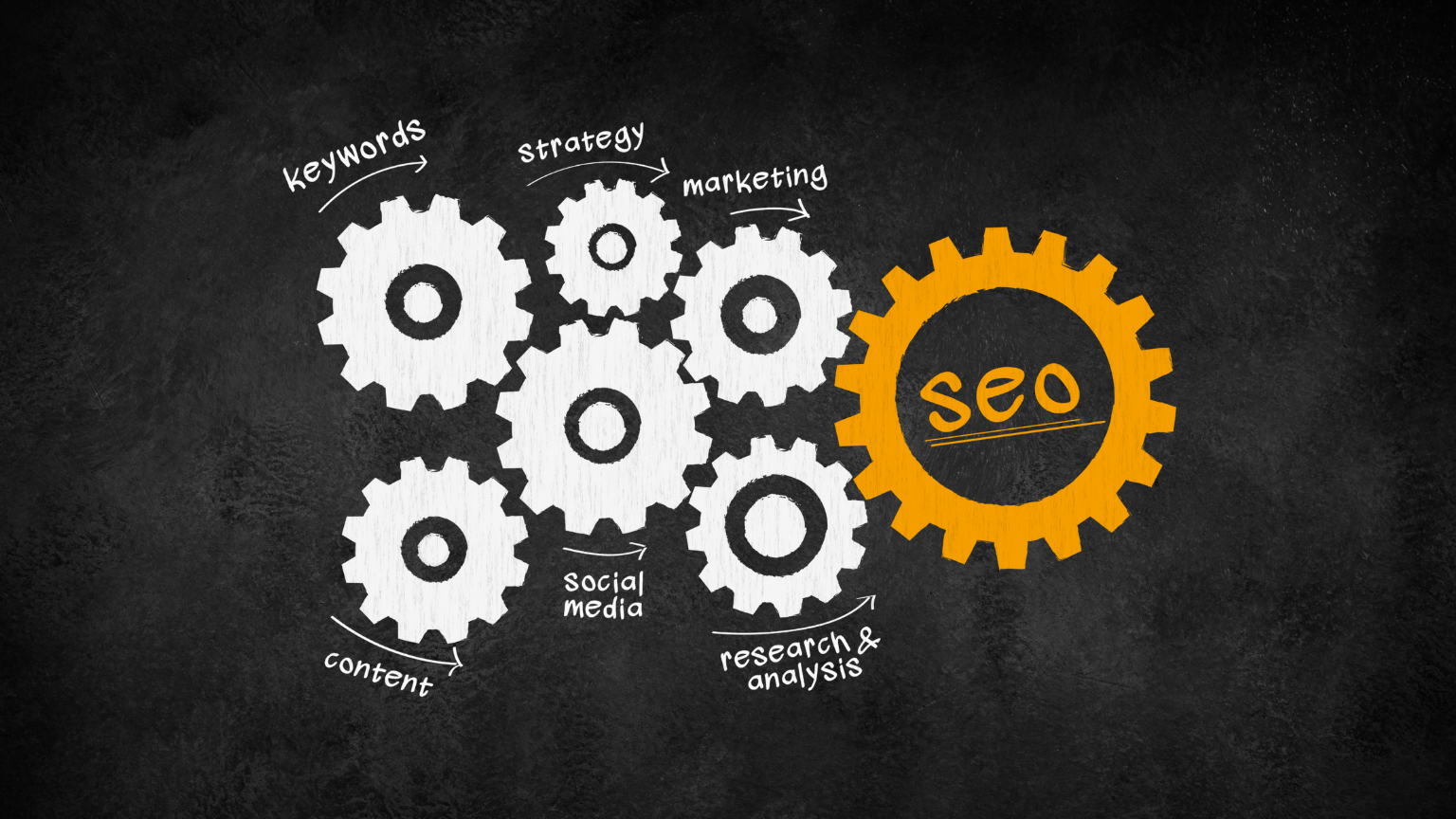Introduction to AI and SEO
Artificial Intelligence, commonly known as AI, has revolutionized various sectors by automating and optimizing processes. With its roots tracing back to the mid-20th century, AI has evolved significantly from simple machine learning algorithms to sophisticated systems capable of performing tasks that typically require human intelligence. These include language translation, image recognition, and even driving cars. Its pervasive nature has deeply integrated into daily life, influencing sectors such as healthcare, finance, and, significantly, digital marketing.
Search Engine Optimization (SEO), on the other hand, is a critical component of digital marketing aimed at increasing the visibility of websites in search engine results pages (SERPs). Achieving high rankings in search results is paramount for businesses seeking to enhance their online presence and attract organic traffic. SEO encompasses a variety of techniques, including keyword research, content optimization, link building, and website performance enhancements. These methods ensure web content is relevant and authoritative, allowing search engines to index and rank pages more effectively.
The intersection of AI and SEO is where transformative digital strategies emerge. AI technologies can automate and refine SEO practices, making them more efficient and dynamic. For example, AI-powered tools can analyze large datasets to identify trends and insights that human analysts might miss. They can optimize content dynamically, provide real-time keyword suggestions, and even predict future search trends. By leveraging AI, businesses can develop more precise and impactful SEO strategies, ultimately enhancing their digital marketing effectiveness.
Understanding the basic concepts of AI and SEO is crucial for recognizing the potential synergies between them. As we delve deeper into this blog post, we will explore how AI-driven SEO tools and techniques are redefining the digital marketing landscape. This foundational knowledge sets the stage for a more detailed discussion on the transformative power of AI in optimizing search engine results.
How AI Enhances Keyword Research
In the realm of Search Engine Optimization, keyword research is foundational. Traditional methods rely on manual processes and tools that, while effective, are often time-consuming and less precise. Enter artificial intelligence (AI), which is transforming keyword research by bringing efficiency, accuracy, and predictive analytics into the fold.
AI-powered tools are equipped to handle vast amounts of data, enabling them to identify high-performing keywords that might otherwise be overlooked. Unlike traditional methods, which may take hours to sift through keyword variations and competition data, AI can perform in-depth analyses in a fraction of the time. These tools utilize machine learning algorithms to understand and predict keyword trends, ensuring that the keywords chosen have a higher probability of improving search engine rankings.
One of the key capabilities of AI in keyword research is pattern recognition. AI algorithms can dissect historical data to unearth trends and patterns that indicate how certain keywords perform over time. For instance, an AI tool can analyze seasonal search trends, determine the rising popularity of specific phrases, and predict future shifts in keyword effectiveness. This proactive approach allows businesses to stay ahead of the curve, optimizing their content based on data-driven insights.
Popular AI-powered keyword research tools, such as Google’s RankBrain, SEMrush, and Ahrefs, simplify the entire process. Google’s RankBrain leverages AI to understand search queries better and deliver more relevant results. SEMrush and Ahrefs offer comprehensive keyword research features that include AI-driven suggestions, competitive analysis, and keyword difficulty assessments. These tools not only streamline keyword research but also enhance the overall SEO strategy by providing deeper insights into search intent and user behavior.
Ultimately, the integration of AI into keyword research significantly improves the precision of SEO tactics. By leveraging advanced algorithms and large data sets, AI can identify the most impactful keywords, forecast their potential performance, and ensure a more data-driven approach to digital strategy. This fusion of AI and SEO positions businesses to achieve higher visibility, better engagement, and sustained success in the digital landscape.
AI’s Role in Content Optimization and Creation
In the realm of search engine optimization (SEO), artificial intelligence (AI) has emerged as a pivotal tool, transforming how content is both optimized and created. AI-powered tools provide invaluable assistance in content analysis, enabling marketers to uncover the most effective content structures, tones, and styles that resonate with their target audience. These insights are founded on extensive data analysis and pattern recognition, processes that significantly exceed human capabilities in speed and scope.
One of the key advantages AI brings to content optimization is its ability to generate data-driven recommendations. AI-driven content analysis tools scrutinize existing content, competitor strategies, and user engagement metrics to suggest optimal formats and styles. This empowers marketers to craft compelling content that not only engages users but also ranks higher on search engine results pages (SERPs).
AI also plays a crucial role in generating topic ideas. By analyzing vast amounts of data from search queries, social media trends, and industry news, AI can surface trending and relevant topics that marketers may not have considered. This ensures content is always fresh, timely, and aligned with what users are actively searching for, thereby enhancing its visibility and relevance.
Meta descriptions, a critical element of on-page SEO, benefit greatly from AI intervention. Tools like MarketMuse, Clearscope, and SEMrush leverage AI to create concise, keyword-rich meta descriptions that improve click-through rates and overall search engine performance. These AI solutions analyze high-ranking content, enabling them to produce meta descriptions that are both informative and enticing.
Moreover, AI-powered writing assistants such as Grammarly, Jasper, and Copy.ai have become integral to producing high-quality content. These platforms not only ensure grammatical accuracy but also offer suggestions for improving readability and incorporating SEO best practices. They analyze text for keyword density, content gaps, and readability scores, providing instant feedback and actionable recommendations.
By integrating AI into content optimization and creation, marketers can produce superior, SEO-friendly content efficiently and effectively, thereby achieving better rankings and enhanced digital presence.
Future of AI in SEO: Trends and Predictions
The integration of Artificial Intelligence in Search Engine Optimization is steadily evolving, paving the way for more sophisticated and efficient digital strategies. As we look toward the future, several emerging trends are poised to reshape the SEO landscape profoundly. One such trend is the rising importance of voice search optimization. With the proliferation of smart devices and virtual assistants, voice search is becoming a dominant mode of online queries. AI technologies are increasingly capable of understanding and processing natural language, enabling SEOs to optimize for the conversational queries typical of voice search. This shift necessitates a reevaluation of keywords to include longer phrases and question-based queries.
AI is also set to revolutionize local SEO. As consumers increasingly rely on their mobile devices to find local businesses, optimizing for “near me” searches becomes crucial. AI-powered algorithms can provide real-time, localized search results with pinpoint accuracy, helping businesses connect with potential customers more effectively. This includes not only geographical targeting but also personalizing search results based on user preferences and behaviors.
Another pivotal development is the growing emphasis on user experience (UX). Search engines are increasingly prioritizing websites that offer superior user experiences, such as fast loading times, mobile-friendliness, and intuitive navigation. AI can analyze vast amounts of data to assess and predict user behavior, enabling businesses to tailor their websites to meet user expectations better. Implementing AI-driven insights can improve engagement and retention rates, directly impacting search rankings.
Experts predict that AI will continue to advance, facilitating the automation of more complex SEO tasks such as content creation, link building, and technical audits. Businesses should stay abreast of these trends and invest in AI tools that enhance their SEO efforts. Preparing for an AI-driven future involves embracing these technologies and fostering agility in adapting to rapidly changing algorithms and user behaviors.
In conclusion, the future of SEO in an AI-driven landscape promises remarkable transformations. Staying informed of AI advancements and integrating these technologies into SEO strategies will be crucial for businesses aiming to maintain a competitive edge. By focusing on voice search, local SEO, and user experience, companies can capitalize on the evolving digital trends and ensure sustained growth in the ever-changing realm of search engine optimization.







